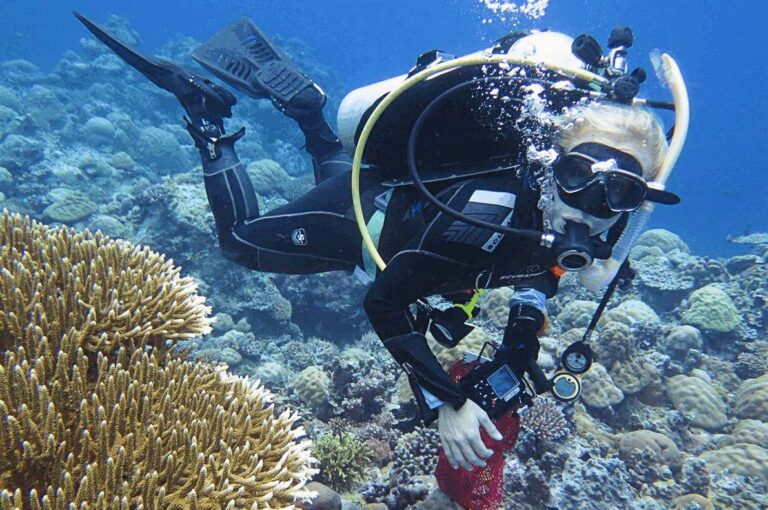Future survival of the coral reefs treasured by scuba divers might well depend on the coming of ocean-warming resistant species – bred in the laboratory.
Now researchers from the California Academy of Sciences’ Coral Spawning Lab say they have produced the first-ever “family tree” for aquarium-bred corals, designed to gain insights into maximising genetic diversity and adaptability in corals bred for conservation. It is also able to match baby corals, normally dispersed on ocean currents, with their parents and siblings.
Also read: Lungfish Methuselah even older than thought
The academy, a San Francisco-based research institute and natural history museum, says that corals bred in public facilities such as its Steinhart Aquarium provide not only research opportunities but a healthy stock for outplanting in the wild to safeguard coral-reef ecosystems.
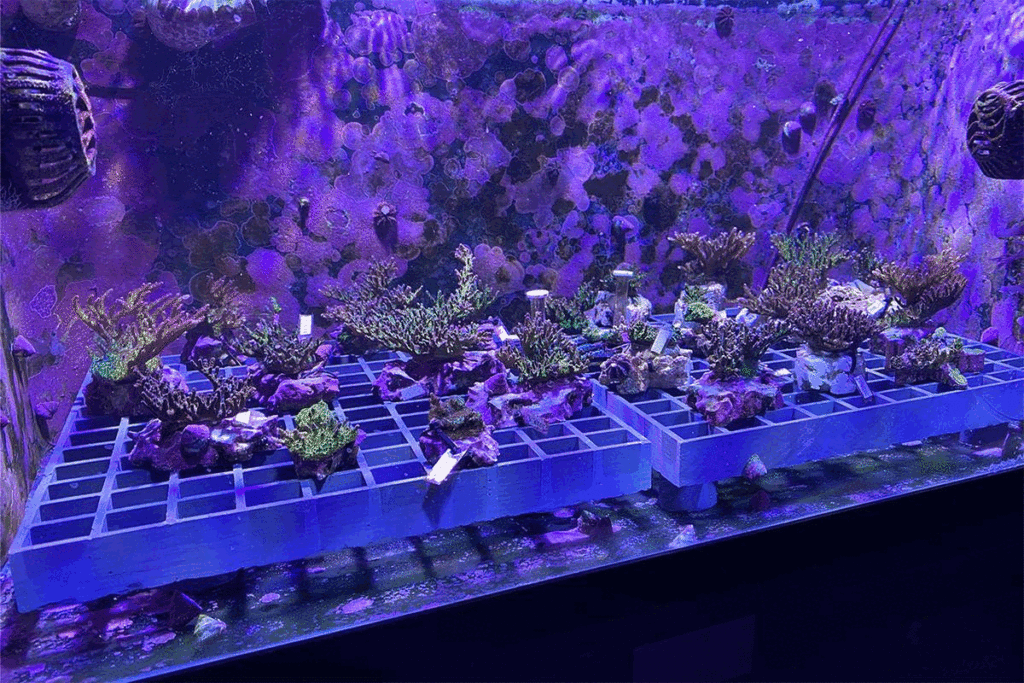
Its family tree or “pedigree”, published in a new study in Frontiers In Marine Science, includes a list of best practices for maintaining genetic diversity in aquarium-bred corals.
“Genetic diversity is what enables species to adapt to the myriad threats resulting from climate change,” says academy curator Rebecca Albright, who leads the Coral Spawning Lab. Its work feeds into the academy’s “Hope For Reefs” initiative, which aims to halt the decline of coral reefs within a generation.
“For facilities like ours at the Coral Spawning Lab, ensuring each generation of corals is diverse allows us to conduct more robust experiments, which is a critical element of better understanding how corals can thrive on our changing planet,” says Albright. “For organisations that do outplantings, increased genetic diversity translates to a greater chance of survival in the wild.”
The researchers genetically analysed the parents and offspring from two generations of the classic table coral Acropora hyacinthus spawned in the lab in 2019 and 2020. Based on the similarities between their DNA, they were then able to determine the relationships between individual corals, such as parenthood or siblinghood.
“Corals are broadcast spawners, meaning that multiple colonies release their sperm and eggs into the water simultaneously, and there’s no way to immediately tell which coral parented which offspring,” says academy coral researcher and study author Elora Lopez-Nandam.
“Surprisingly, we found that just two of the four colonies that spawned in 2019 parented 22 out of the 23 offspring that survived to their 2nd birthday.” Now the researchers are working to determine what exactly it was that made those two parents were so successful.
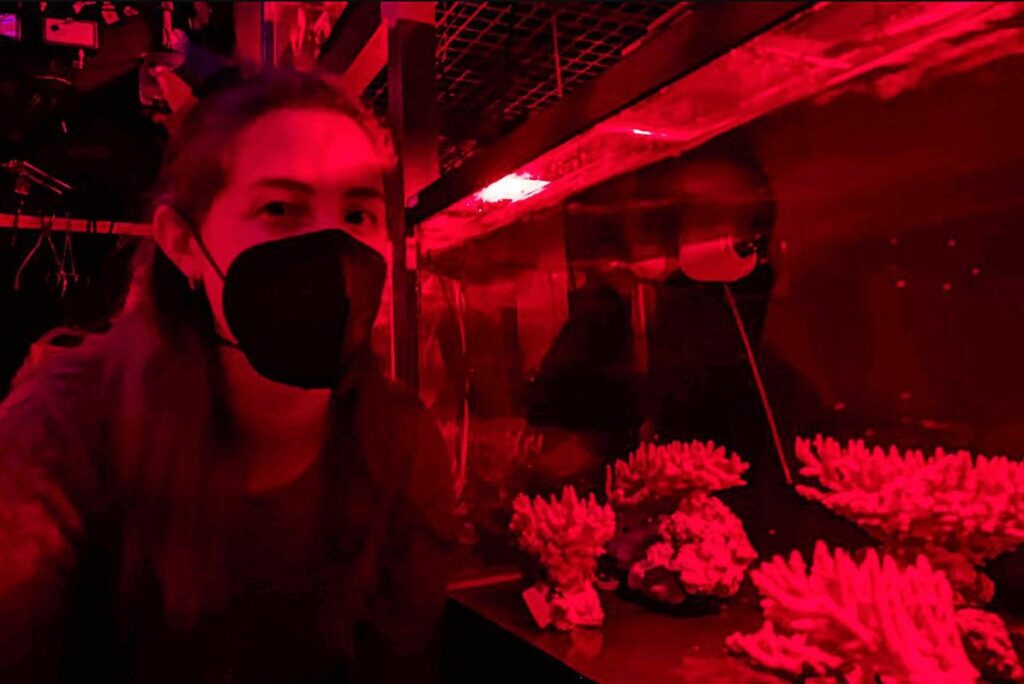
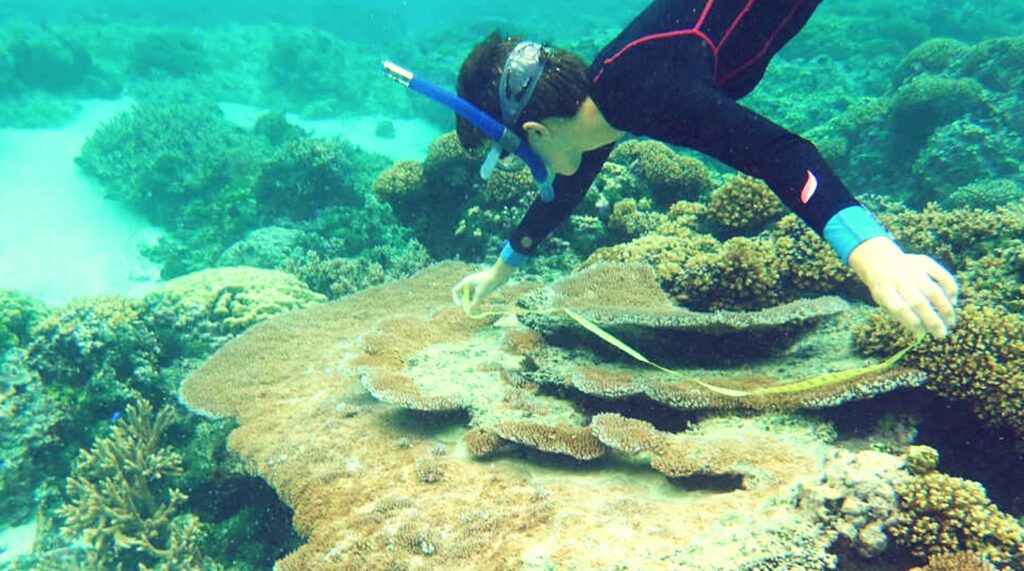
“While successful coral-spawning events are a testament to how closely we have been able to mimic natural oceanic conditions, inevitably there are environmental pressures in aquarium settings that will differ from those in the wild and might be selecting for certain traits in each generation of coral,” says Lopez-Nandam.
For this reason, the researchers have also sifted through all 450 million DNA “base pairs” from each sampled coral to find any genetic differences between successive generations. The exercise revealed 887 points of apparent difference between the aquarium-bred and wild corals, mostly related to symbiosis with photosynthetic algae.
“We hope to conduct future research in the Coral Spawning Lab to determine what exactly from an aquarium setting is driving these differences and how those genetic variations impact the overall fitness or health of aquarium-bred corals,” says Lopez-Nandam.
More DNA in Dive & Dig
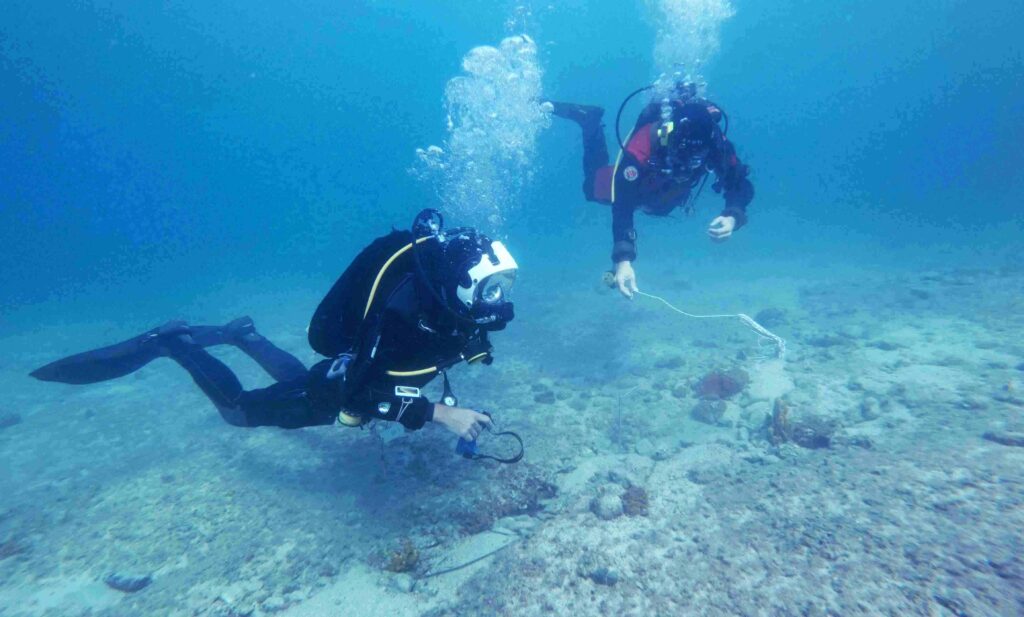
DNA is also central to the final episode of the Dive & Dig maritime archaeology podcast, recently featured on Divernet. 8,000 Years Under the Sea reveals details of DNA extraction from marine sediments on the oldest submerged island settlement in the Aegean Sea, Agios Petros in Greece’s Sporades archipelago.
It has been estimated that 8,000 years ago the sea level there might have been some 30m lower than it is today, with rising levels after the last Ice Age causing human settlements at the prehistoric site to sink. Now underwater marine-sediment cores are being extracted and analysed for ancient animal and human DNA.
The episode features Cathy Giangrande, one of the original scuba divers at the site in 1981, and the five-part series is presented by historian Bettany Hughes and marine archaeologist Dr Lucy Blue. It is available on major podcast platforms or direct from the Honor Frost Foundation. Follow on Twitter or Instagram).
Also on Divernet: 10 Ways Tech Is Rescuing Coral, Coral Farmers Reshaping The Future, What Will It Take For Coral To Survive?
